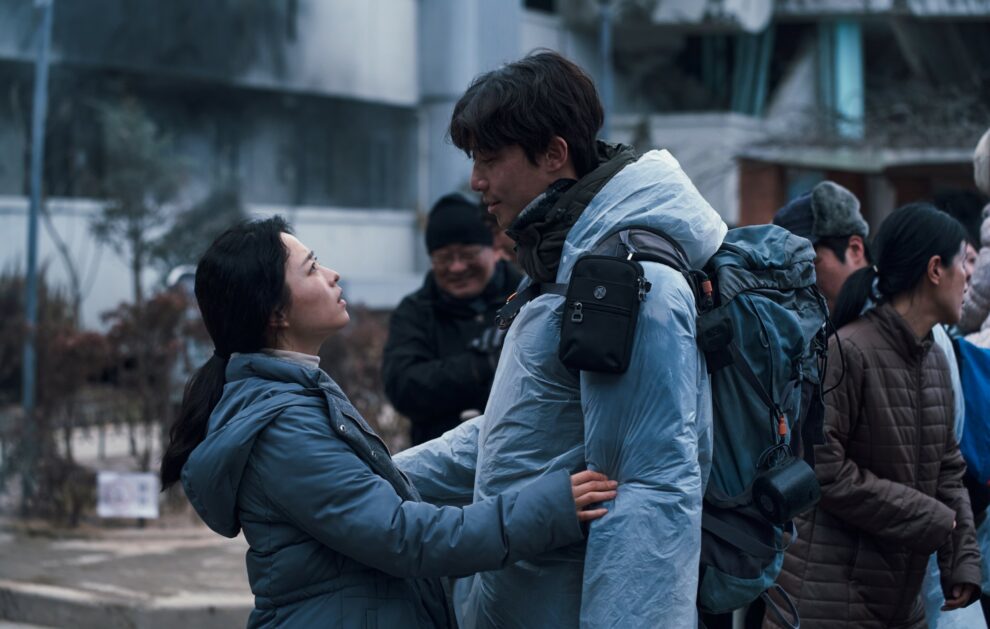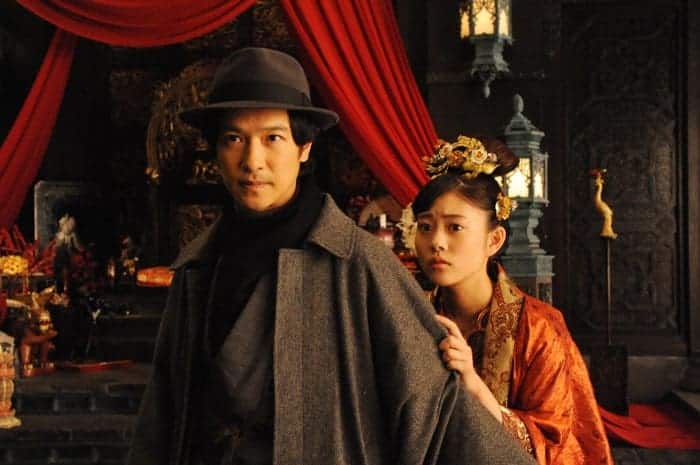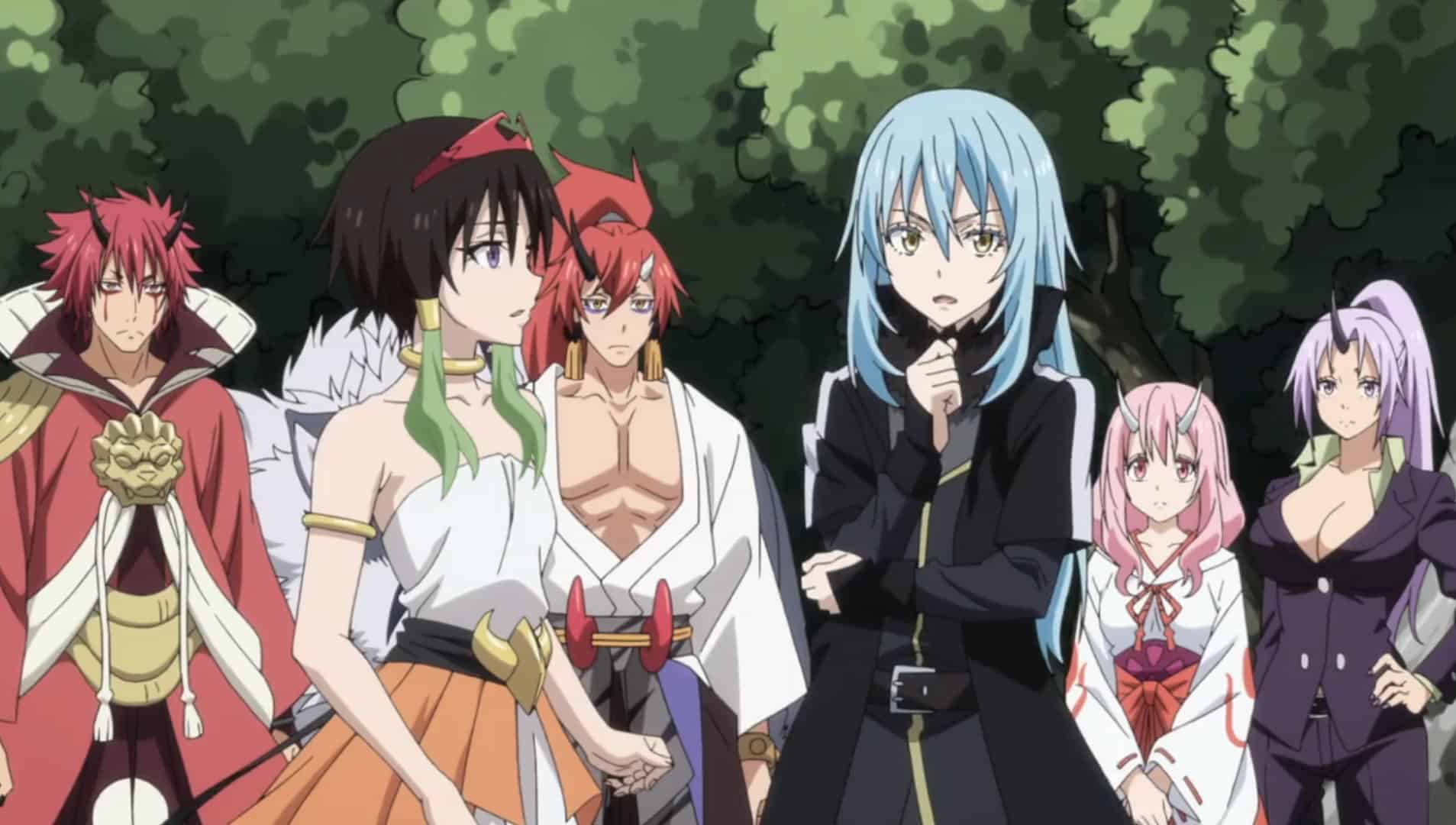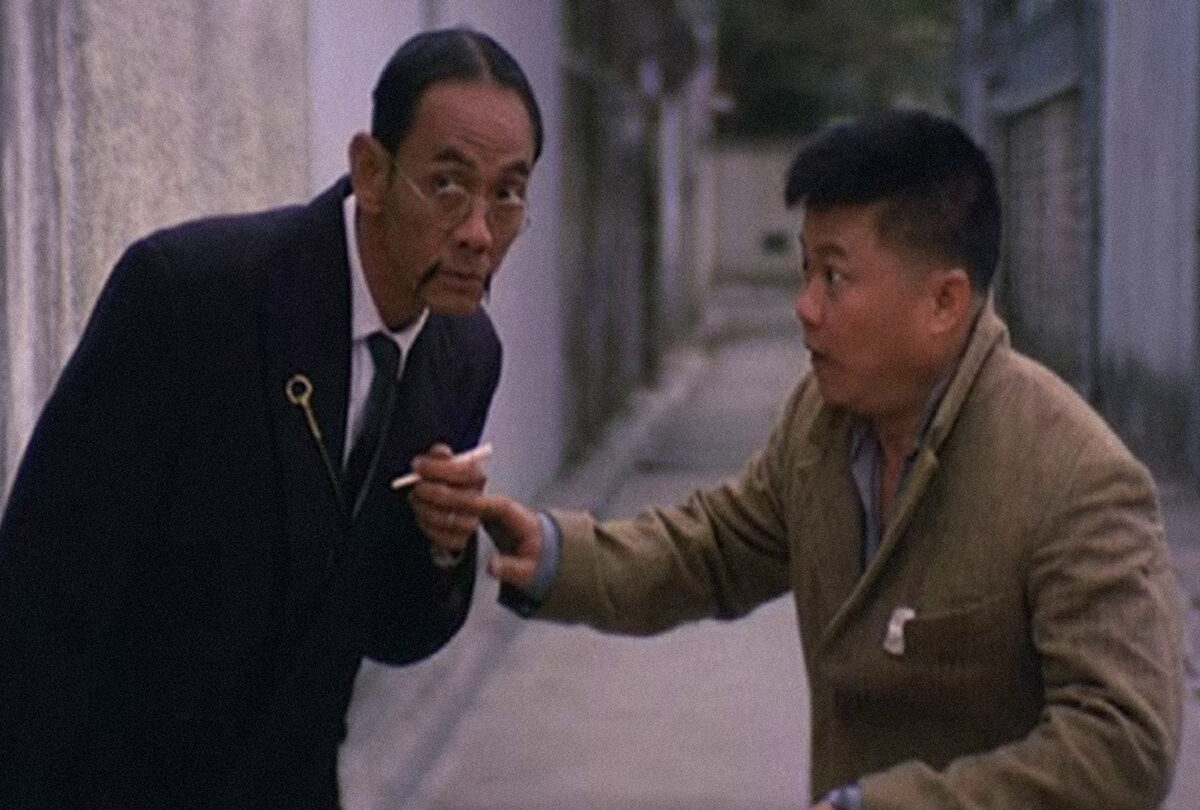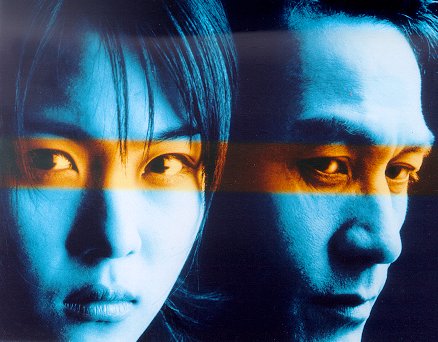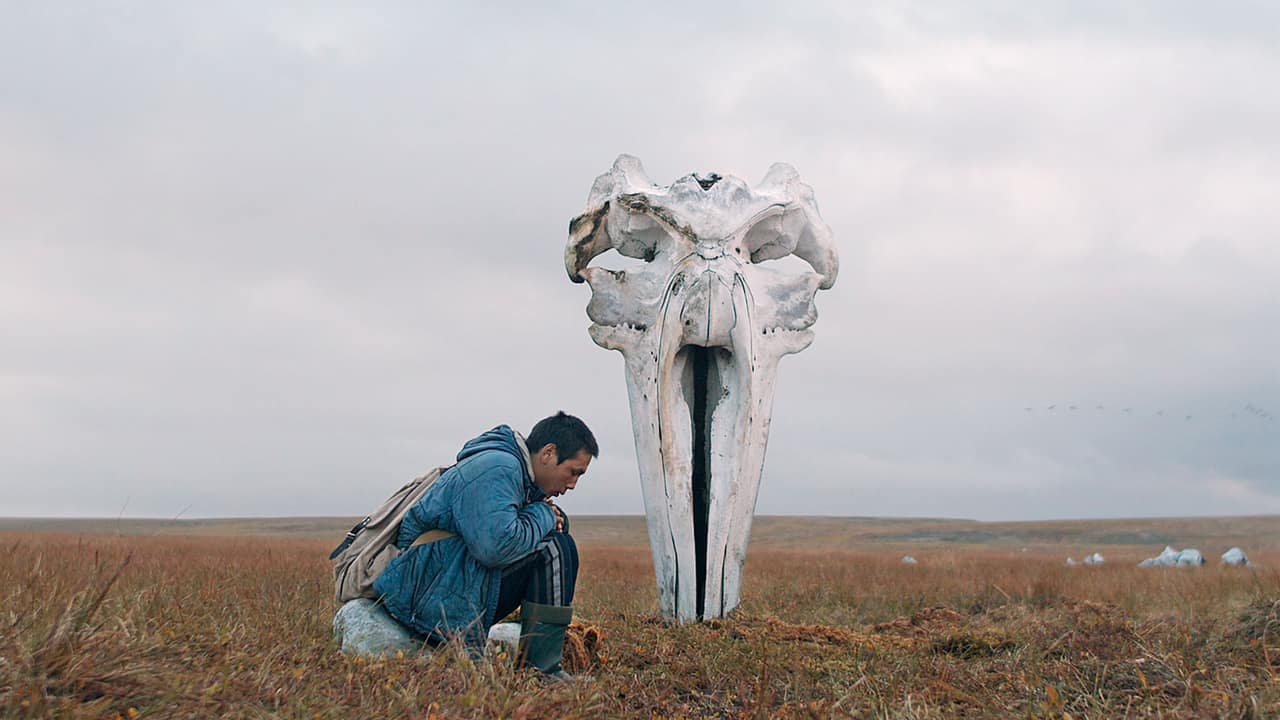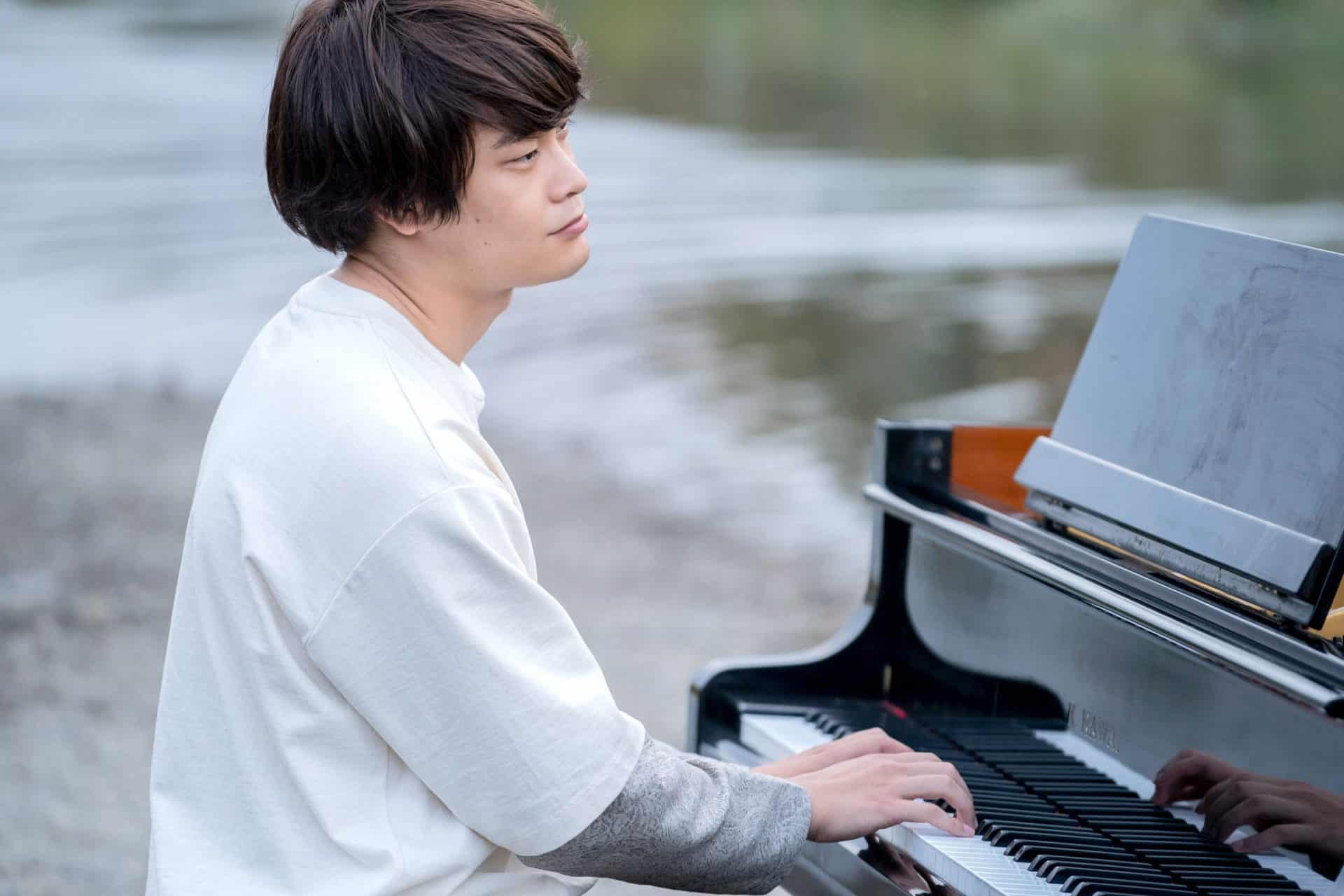by Pawel.Mizgalewicz
There are subtle societal metaphors in art, and there is „Concrete Utopia”, in which the earthquake happens right at the end of the opening titles, and seemingly destroys the whole Korea, if not the whole world. Whole, that is, beside one apartment complex, which magically stays completely untouched. The whole premise of the movie is that every inhabitant of the Hwang Gung complex luckily survived, but a bunch of other people did as well – and so, they start the first day of the post-apocalypse without a home, while the inhabitants do have one. The only home in the world. As you can imagine, the situation gets very tense very fast, kick-starting a deeply uneasy, disturbing thriller. Within just minutes of the film's opening, we see people fighting desperately for one can of peaches. By the way, it's also the winter of the century outside, with minus 26 degrees. In short, it's one of those Eastern Asian movies – a group of people gathered with one message: you are all gonna die, have fun.
Concrete Utopia Will Open in New York and Los Angeles Exclusively In Theaters on Friday, December 8 Nationwide Starting December 15
Based on some parts of Kim Soongnyung's webtoon “Pleasant Bullying”, “Concrete Utopia” is very plot-based and thus describing the events would take too much of the experience. In a way, it's almost too good of an idea for a story: an allegory so pure and potent, you don't have to add anything to it. The thing is, many already did, in numerous variants, usually described as following in “Lord of Flies'” footsteps. Even real-life reporting about floods and wars all over the world often confirms the psychological truths that Um Tae-hwa hits us in the face with. In one moment, all established order of civilized society is erased. The “value” people had yesterday doesn't matter, as some very different personal attributes become key. Chaos ensues, but people quickly realize they need some kind of priorities, they need to choose whom to trust, they need someone to make decisions, and commit to the decisions in an organized group. In face of imminent death from hunger and cold, people feel all the pressure to do this quickly, propelling the drama.
A kind of “Hwang Gung society” arises from the scratch, and the way it all develops is so unsettling, precisely because it feels so realistic. The most common thought when watching “Utopia” is that if such a thing actually happened, this is exactly how people would act. We let out a chuckle of laugh, but one that quickly sticks in our throat. Those are indeed some smart and sober observations about humanity – and, boy, are they not pleasant to see.
Check also this interview
What “Utopia” excels at, though, is keeping the human moral dilemma at the center of it. Unlike many such stories, it's not played with a straight face at all. No one commits to the bit. We can really see the confusion on the characters' faces, and the pain of doing what they know is bad, but just seems to be the only way to survive at the moment. There is no joy in overpowering others in a complicated game of negotiating who gets what, and no one is allowed to be guilt-free. There isn't a lot of outward violence in the movie, but in a way, it's nothing but violence, all the time: most of “Utopia's” action is some kind of play on fear, risk, hope and resignation, fairness and guilt, utility and morality, trying to make a proper impression on others while also nervously watching your back. It's filled with heart-breakingly honest, fleeting human expressions. The face when you realize you lost your chance. The face when you try to pose altruism and conceal how much you only care about your own skin right now. The face when something is appalling you, and you try figure out in amok if your opinion is popular in the group or not. The dialogue is kept simple, which fits the naturalistic approach: you don't expect these people to come up with great lines. It feels exactly right and exactly wrong when one of the survivors sees a corpse and only manages to resentfully comment: “he liked to talk big… now he's dead!”. It's that crude for a reason, and it might shatter your soul. But visually, because of the said faces, it's a tale about dignity and honor: somehow, all people lose those equally when one side is merciless and the other begs for mercy.
The first character we see in the movie is Min-seong (Park Seo-joon), who mostly stands in as a confused everyman caught between two main figures of much stronger conviction. His wife (Park Bo-young) wants to help others no matter the cost. Meanwhile his emerging leader (Lee Byung-hun, once again sweeping all the Korean awards) declares that in this situation, there is no good and bad anymore… there's only Hwang Gung. The choice between the two ideologies is clearly the film's main theme. “Concrete Utopia” does a lot to humanize the ones that commit the most devilish acts, so the conundrum remains an emotional, intellectual and moral challenge to the viewers. It's just hard to deny the arguments of both sides. The film does seem to make a stand at times, but overall is unflinching in presenting evidence that any approach seen here can be questioned. Ultimately, Lee's character is by far the most fleshed-out, with motives and backstory that are complicated on many levels – including, of course (we're watching a Korean societal drama), class and poverty. Does he gain dignity through it all, or lose it? That's something that only the viewer can answer, and Yeong-tak will likely be remembered as one of the classic characters in all of Korean cinema.
While Um Tae-hwa managed to give the advertisement team some material with a few big CGI earthquake scenes, “Concrete Utopia” is overall aesthetically bleak, if not boring. The green-screen vistas of ruin are mostly unmemorable, and the inexpressive lighting invites you to just focus on the actors and the story. It seems partly intentional, especially as the movie's one highly stylized scene seems to be a parody of propaganda films. The director might be just following the famous Adorno quote that “poetry after Auschwitz is barbaric”, as “Utopia” would definitely be a bit different experience if it looked pretty. But on the other hand, maybe in management of another director, and with more budget, the story could become even more engaging. Born in 1980, Um is still seen as an up-and-coming director, and after “Utopia's” gigantic success, will now certainly get way more chances to show us his style. The way it is, the film's tone-deaf technical execution can get a bit tiring. And yet, to dwell on it too much and to ask the director for flair feels like going against the film's message. Not every movie has to be “Children of Men” and dazzle with the cinematography so much that the meaning becomes hard to read. We can perhaps just let the story shine.
“Concrete Utopia” is Korea's candidate for International Film Oscar, and after the unbelievable successes of “Parasite” and “Squid Game”, it's tempting to say that the country has found its favorite type of story. The similarities are hard to deny, and in a way that takes some edge off the concept that would be more revolting a few years ago. It is another tale focused on showing us what people will do when desperate, and with similar vibe of concern about poor humans placed in a nihilistic plot. But because of a strong central character and very clear main theme, “Utopia” should stand out on its own even in the field of those hits. It's still a tear-jerking, soul-jerking shocker, with one of the most powerful final sentences in recent memory (well, technically, it's the penultimate sentence, but you won't miss the impact). If this is to become Korea's specialty, then the country's culture has another claim to global fame.


